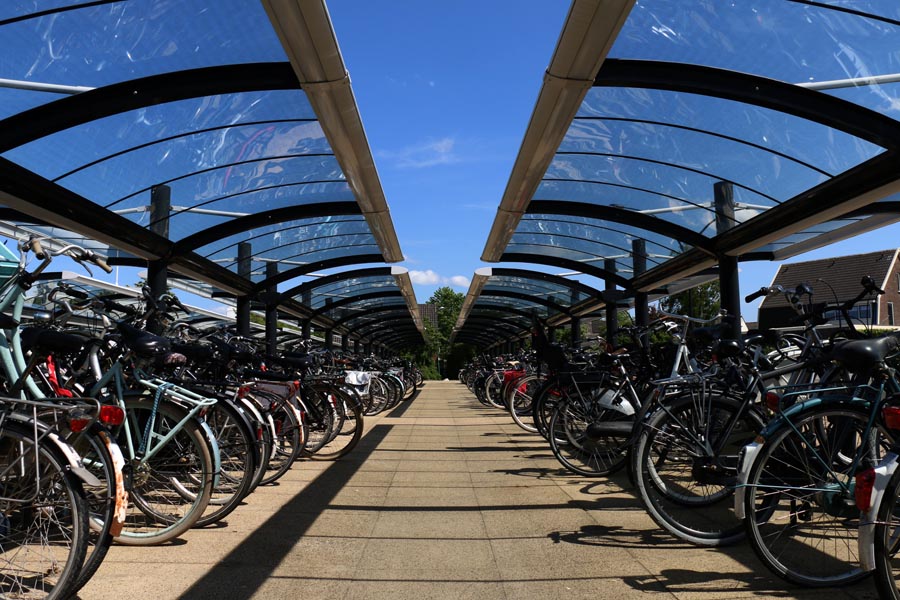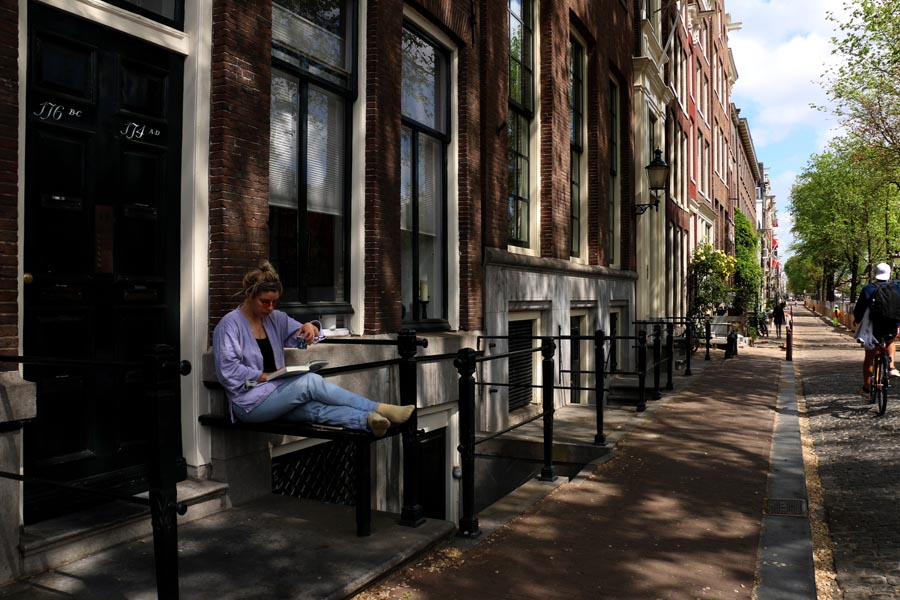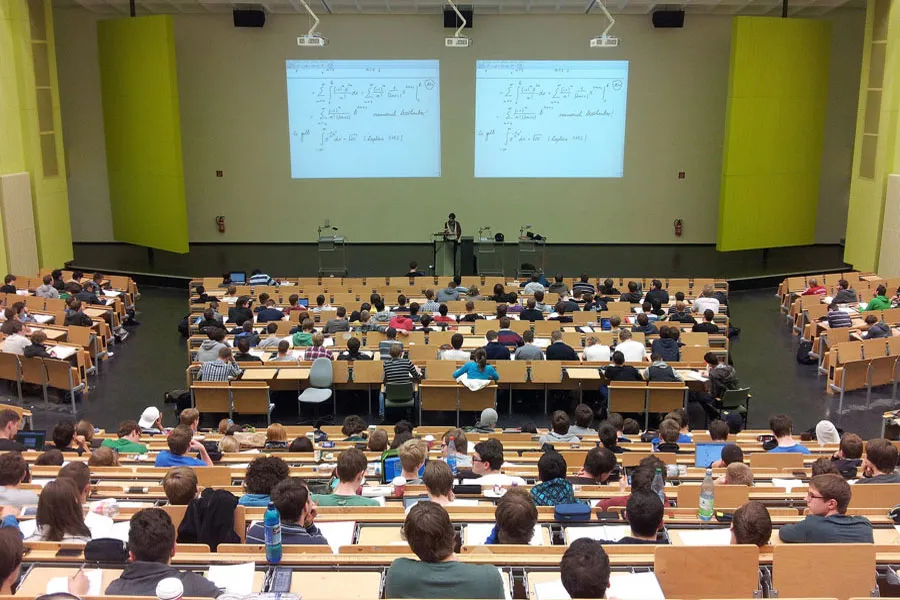About the Orientation Year Visa
When you graduate or get your PhD from a designated higher education institution in the Netherlands you have the opportunity to apply for the “orientation year residence permit for highly educated persons.”
This residence permit allows internationals and EU graduates to stay in the country legally for an additional 12 months after successfully graduating and receiving their degree.
During this one-year period, the graduate can work in any type of job as a work permit or sponsorship is not required. This scheme incentivizes recent expat graduates to stay in the country for an additional time to either join the Dutch workforce of start their own business.
However, to be eligible for the residence permit there are a number of prerequisites which include verifying that your university is a top 200 ranked institution of a general, faculty, or subject ranking list.
Below we break down the general and specific requirements in order to be eligible for the orientation year visa.
Orientation Year Visa Eligibility
Like the highly skilled migrant (HSM) visa, the orientation year visa comes with a handful of prerequisites. Additionally, there are a few conditions tied into an applicants eligibility.
For starters, applicants must only apply if they are within a three years window of having graduated. After three years of your graduation date, you can no longer take advantage of the zoekjaar visa.
Other conditions include undergoing a tuberculosis (TB) test as part of the application process, but this depends on your country of origin. A full breakdown of the general conditions can be found here.
Specific Requirements
For the orientation year visa applicants are required to verify and cross-check a handful of things.
Foremost, the applicant must be able to prove they are a highly educated person.
This means successful completion of a Bachelor’s, Master’s, PhD, or post-doctoral program either in the Netherlands or at a designated international educational institution abroad.
Furthermore, applicants are also eligible if they completed:
- a Master’s program from an Erasmus Mundus Masters Course;
- a higher education program recognized by ministerial order;
- a program related to the Dutch Cultural Policy Act or;
- a study through the Dutch Ministry of Foreign Affairs’ development program.
Other eligible applicants include those that previously held a Dutch residence permit for scientific research or that worked as a highly skilled migrant doing scientific research in the Netherlands.
Moreover, applicants that obtained a degree from a designated international educational institution abroad must be able to prove language proficiency. Unless the degree program was done in English or Dutch, this means either:
- taking and scoring 6.0 or higher for the IELTS (International English Langauge Testing System),
- scoring the equivalent or higher in an English language test that complies with the Code of Conduct for international students in Dutch higher education.
Finally, your foreign diploma will have to be be submitted and evaluated by NUFFIC prior to being accepted or deemed authentic.
You can find the full breakdown of the specific eligibility requirements on IND.
If your educational institution is, on the date of your graduation or obtaining your PhD, not listed in the top 200 of any of these general ranking lists or in the top 200 of any of these ranking lists by subject, that corresponds with your field of study or research field, you do not qualify for the orientation year.
The Application Process
The application process for the orientation year visa will look differently depending on where and when you are applying.
For those already in the Netherlands, the application is a bit more straightforward and can be started online via IND. Please note, in order to start the application online you must have your DigiD or be able to digitally upload all required documents within the application.
If you are unable to complete your application digitally, IND does have the application available for download which you then must mail.
To apply, you do not necessarily need to wait for the university to give you your diploma. If you know you want to apply for the orientation year visa, and your student visa expires shortly, you can ask your university for a declaration letter that states you have fulfilled all the requirements to earn your degree.
Sometimes, due to delays at your institution you might not have the physical diploma by when you need to submit your application. However, a declaration letter from your university is just as valid.
Please note, that the wait time for a decision from IND once you submit your application is 90 days.
If after completing studies the applicant left the Netherlands (or they completed a degree outside of the Netherlands that falls under the designated list mentioned above) depending on their nationality, they will need an MVV. Details about the MVV are briefly outlined below.
Applying From Abroad
Depending on your nationality, you may need a provisional residence permit (in Dutch: ‘machtiging tot voorlopig verblijf’ or ‘MVV’) if you want to enter the Netherlands and then begin your orientation year application.
An MVV is an entry visa that is required if you want to stay in the Netherlands for more than 90 days and your nationality or circumstances do not exempt you from the MVV requirement.
The TEV procedure combines the application for an MVV and the application for a residence permit. If an MVV is granted to you, you will automatically obtain a residence permit after arriving in the Netherlands.
Use the Coming to the Netherlands tool to find out if you need a provisional residence permit.
If you need a provisional residence permit, you must start the procedure with the Dutch embassy or consulate in your country of residence.
Timeframes to Consider When Applying
When you are in the Netherlands from abroad, you are on a student residence permit. Once you graduate, your enrollment at your educational institution will terminate and your student permit will follow suit.
If you know you’d like to stay right after graduation for your orientation year, it’s important to know the window of time you have from when your student permit expires to better plan your orientation visa application.
How long your residence permit remains valid, can vary based on your situation. For example, if you withdraw from your degree program your student residence permit is immediately revoked.
Alternatively, once you have finished your degree program your residence for study purposes is valid for three months or less from the date your enrollment at the educational institution ends.
Since the decision period from IND for the orientation year is 90 days, it’s advisable you apply for the visa as early as possible (permitting your university can provide a letter stating you have completed the requirements for your diploma).
As a reminder, the timeframe to apply and be eligible for the orientation year visa has to be within three years from when you graduated.
Start Time and Length of Orientation Year Visa
The orientation year visa is valid for 12 months.
Within that year, you need to find employment as a highly skilled migrant or start up a business if your plan is to stay in the Netherlands.
The 12 months (or start time) of the orientation year is dated back to the date of your application submission. For example, if you submitted your application in August and received a decision from IND 30 days later in September, your orientation year visa is dated back to August. This gives you 11 remaining months on the visa.
Moreover, if you submitted your application but still have time on your student visa when you receive your positive decision from IND, your student residence permit is nulled and the start date of your orientation year also dates back to when you submitted your application.
If you were required to apply for an MVV to enter the Netherlands and it is granted to you, you will automatically obtain the residence permit upon arrival. Your residence permit will start on the day after the date the MVV sticker was placed in your passport or on the date you entered the Netherlands.
Benefits of the Visa Scheme
Those that are able to take advantage of the orientation year visa scheme find that the visa comes with many benefits.
Notably, the biggest benefit is your ability to freely navigate the Dutch workforce. When working under the orientation year permit, sponsorship from your employer is not required. Also, those on the zoekjaar do not need to apply for a valid work permit.
Additionally, apart from the Minimum Wage and Minimum Holiday Allowance Act (WML), there is no salary criterion. If you are working under the orientation year visa, then the reduced salary criterion will apply to you when you get a job as a highly skilled migrant. This serves as an additional incentive for an employer to hire you.
Furthermore, as an international you are granted the freedom to start your own company without any restrictions for the 12 months.
Finally, the orientation year visa gives you the chance to learn the Dutch language while you’re working in the Netherlands. You also get the chance to gain insight into the Dutch culture and customs.
Working and Other FAQs
As mentioned earlier, the application for the orientation year visa can be tedious and tricky.
Many highly educated persons find that the application process leaves many questions unanswered. For example, many PhD and post-doctorate applicants already have families and need to know if their families can also stay in the Netherlands.
Furthermore, what happens if the applicant has found a job and needs to begin employment immediately (while waiting on the decision from IND)?
Below we answer some of the more common questions related to the orientation year visa.
Working with an Endorsement Sticker
Part of the purpose of the orientation year visa is to allow highly educated internationals to work (or intern) in the Netherlands.
Normally, your ability to start working is valid as soon as you have the residence permit. Although IND allots a 90-day window for making a decision, as of recently applicants have received decisions within two to three weeks. Once you have this residence permit you can start your new job or begin your job search.
But, if you cannot wait 3 weeks, because you have already found a job and your employment contract starts within 3 weeks, you can get a (free) residence endorsement sticker in your passport at an IND desk.
The sticker will be valid while your application is pending and states that you reside legally in the Netherlands and that you have free access to the Dutch labour market. This means you can start working immediately after you have collected the sticker. You do not have to wait for the residence permit itself.
If you apply online or by post and your application is complete, you can get the sticker after your application has been registered. If you apply at an IND desk, you can get the sticker immediately if you submit all requested documents with your application.
You will have to make an appointment by phone if you want to submit your application at an IND desk. You cannot get a residence endorsement sticker if you applied for an MVV abroad and that application is still pending.
Working: Highly Skilled Migrant Visa vs. Orientation Year Visa
Many questions arise from highly educated persons when they both begin the visa application and when they enter the Dutch market on their orientation year.
For example, questions include visa changes when the orientation year residence permit holder finds a job that can sponsor employment. When you find employment with a Dutch business that provides sponsorship, you will get a highly skilled migrant (HSM) visa.
But, if you are on your orientation year, your employer can delay filing and submitting the HSM application until before your orientation year visa expires. Of course, you and your employer can also decide you’d rather just switch your visa instead of waiting.
Sometimes graduates find sponsored employment in the Netherlands prior to graduating and do not need to apply for the orientation year visa. When this is the case, the graduate is still eligible for the reduced salary criterion.
Additionally, they can still apply for their orientation year visa down the line so long as they are still within the three year window.
Other Common Questions
Many applicants going from student residence permits to orientation year permits find that as they wait for a decision from IND, many other logistical questions and concerns arise.
Firstly, when international students move to the Netherlands for higher education, they must provide proof of sufficient means to IND. In other words, the student must show they have the financial means to study and support themselves during the study program.
As related to going from student visa to orientation year visa, this is no longer a requirement.
Additionally, the application does not mention whether a spouse or child is able to stay in the Netherlands with the graduate once the orientation year visa is granted. According to IND, this is possible.
Since the orientation year application does bring about a handful of general questions, IND has created an FAQ with a handful of questions and answers. If you are in the midst of applying for the orientation year visa and have questions, you can access the FAQ here.
Video: Promotional video about the orientation year visa for highly educated persons
A Video of the Immigration and Naturalisation Service (IND)








